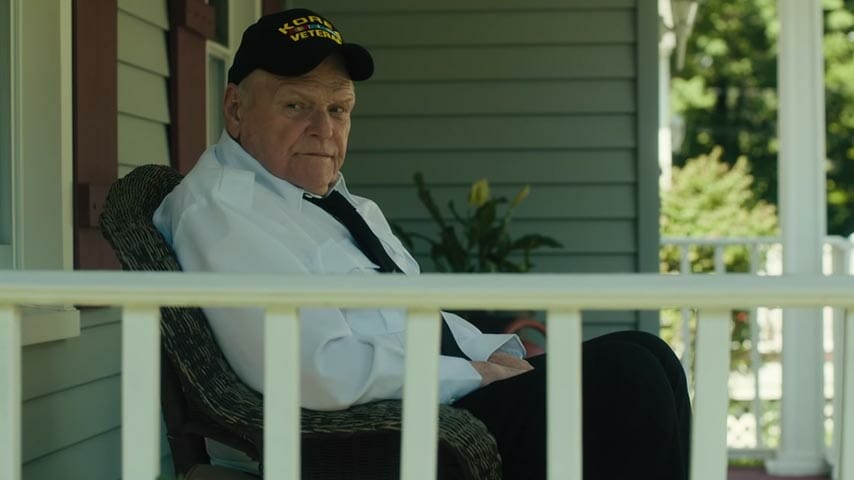Driveways Bids Farewell to Brian Dennehy, Giant with a Gentle Heart

Loneliness looks different for the lonely depending on their circumstances, and Andrew Ahn’s sophomore feature, Driveways, captures that spectrum through character. For single mom Kathy (Hong Chau), loneliness means sitting amongst the clutter of her dead sister’s house, dwarfed by junk crammed into every corner and piled to the ceiling. For widower Del (Brian Dennehy), loneliness is literal: He lives alone in the house he shared with his wife for decades before her death, their only daughter having relocated to Seattle years prior. For Kathy’s son Cody (Lucas Jaye), loneliness is a weird blessing: Social anxiety makes him hurl; he’s happier reading or playing video games.
Still, Cody wants to play with other kids, or at least he wants to want to, and Kathy, being a concerned mom, knows that even pleasant self-imposed isolation has adverse effects on children. Fortunately for both of them, Del is eager for company, though, as a man of a certain disposition, he’s not exactly the type to appear eager. Regardless, while Kathy cleans out her sister’s place, Del and Cody slowly bond, though their chummy and charming friendship has an expiration date: Kathy and Cody are out of towners staying in the unnamed New York hamlet where Del dwells only for as long as it takes to get the house settled and up for sale. As their time is short, so too is Driveways, a brisk, breezy 80 minutes where conflict is minimal and compassion prevails.
Ahn is working off of a screenplay from Hannah Bos and Paul Thureen, who wrote their story seemingly around the notion that real life isn’t all that theatrical and most of what comprises the drama of our daily existence is pretty mundane. Death in the family sits at the top of the list, followed by low-key bullying from neighborhood idiot boys, low-key racist microaggressions from their nattering grandmother and bureaucratic roadblocks to rescuing family property from municipal purgatory. Driveways sees the daily indignities of American life as drama enough without leaning on artifice. In an alternate universe, the film would hinge on a blow-up between Del and Cody, or Cody and Kathy, or Kathy and Del, and the denouement would resolve that conflict with a big sentimental beat to warm the heart and send the pancreas into shock.
Instead, Driveways is a simple picture about simple acts of human kindness, a much needed tonic at a moment where innocuous advisories about public safety are taken by wingnuts as proclamations of tyranny. A small but vocal American minority is out in the streets giving the finger to their fellow man, sacrificing all decorum and empathy for the sake of their precious personal freedom. Ahn shot Driveways several years ago, and he premiered the film a hundred years ago at the Berlin International Film Festival in 2019, so neither he nor Bos nor Thureen mean to make any comment on what gets airplay on the daily news, but American antipathy is a real thing and has been since well before COVID-19 gave morons permission to storm government buildings and spit in the face of common decency. Driveways is the accidental salve the rest of us need for our current era of callous stupidity.
-

-

-

-

-

-

-

-

-

-

-

-

-

-

-

-

-

-

-

-

-

-

-

-

-

-

-

-

-

-

-

-

-

-

-

-

-

-

-

-








































